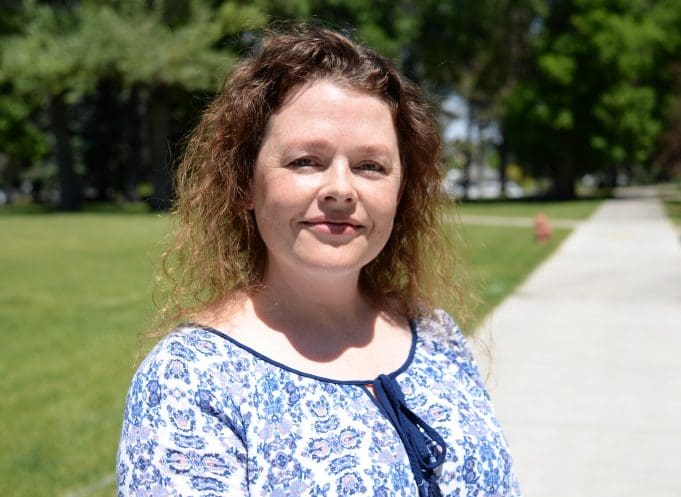July 10, 2017
University of Montana Western Librarian Anne Kish has been appointed to a second term on the State Library Commission.

Anne Kish is keeping busy these days. She works as both an assistant professor and Interim Library Director at Montana Western along with attending regular meetings for the State Library Commission and helping out at the public library in Twin Bridges.
On her appointment, she said, “I think the governor was looking for people who could understand all of the needs of the different library types (academic, public, and K-12). There are tremendous opportunities for collaborations between library types.”
Kish described the function of the State Library Commission as follows, “We determine the budget for the state library, and we work to make sure the State Library succeeds in meeting its mission which is to strengthen libraries and information services for Montanans.”
She also talked about two of the most important programs at the state library. The first is the state library’s role in supporting the maintenance of the Cadastral map.
“One of the primary functions of the state library is to support the Cadastral map. It’s a multi-layered online map where you can find data regarding hydrology, property rights, parcel boundaries, etc.. Geographic Information Specialists gather the data, and the library coordinates, updates and provides access to the data for all citizens. The data is used by groups including realtors, city planners, counties, and other state agencies. That map is the second most used state website,” Kish said.
The second program is the Talking Book Library.
“The Montana Talking Book library provides audio books for the blind. People who are blind can’t browse books like people who are sighted can, so they rely very much on having a librarian who knows their interests and can point them in the direction of the book they need. People who are blind listen to more books than the average population reads.”
Proposed cuts to the state library’s budget could possibly affect all the libraries in Montana and programs such as these. Kish plans to work hard as a member of the commission to ensure that libraries across the state remain strong.
However, these proposed cuts are not related to a lack of patrons at libraries overall. “People use the library more than ever,” Kish said.
She cited a PEW Institute study that stated millennials are the most likely generation to use the library.
The PEW Institute speculates that quality internet connections, community programming, and access to cost-prohibitive technologies, such as 3D printers, are what entice millennials to visit the local library more often than previous generations.
Kish believes that libraries need to adapt to stay relevant.
“We need to change and never stop changing. Libraries have always been very resilient in responding to current needs. Originally, librarians were the guardians of the books. Libraries in the 1950s made a big change when they responded to the public’s interest in vinyl records, and libraries have been continuing to respond to ever-changing patron needs.” Kish said.
She also mentioned her hometown library, and the requests of the patrons there:
“I live in Twin Bridges. For the Twin Bridges library, I received a small grant for youth technology, and the young patrons have been vocal about wanting equipment to learn about robotics. In response, robotics will be incorporated into the summer reading program.”
Lastly, I asked her about the University of Montana Western’s library.
She said, “This library is interesting because higher ed libraries in the state of Montana are required to serve the public because public funds support them. That’s not common in most states. Anyone can use the library, and we encourage them to use it. We issue cards to the people of Beaverhead County, and we welcome them to come in and make use of the collection we have.”
Kish said that the university has been very supportive of her joining the State Library Commission. She believes that her position is quite beneficial to Montana Western and its library:
“It positions me to better be able to serve this library,” she said.
“I have connections among the statewide library community. I can see which institutions, or people can partner with Western in mutually beneficial way. I’m proud to be a representative of Montana Western on the commission.”